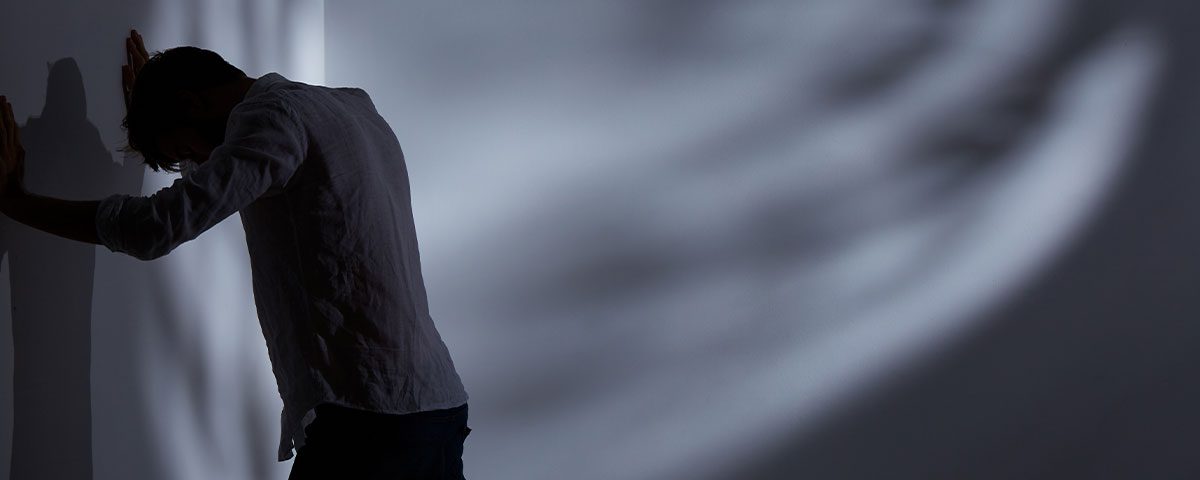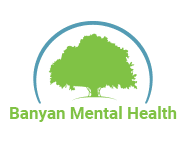


Famous People with Schizophrenia: History Edition
December 7, 2021

Difference Between Schizoaffective and Schizophrenia
December 17, 2021How Many Types of Bipolar Disorder Are There?


Bipolar disorder is a mental health disorder characterized by episodes of mood swings ranging from depressive lows to manic highs.
The exact causes of bipolar disorder are unknown, but a combination of factors like genetics, environment, and altered brain chemistry and structure are believed to contribute to the onset of bipolar disorder. As with many other mental disorders, bipolar disorder is a multifaceted condition, and different kinds exist. With that said, the question we’re answering today is: how many types of bipolar disorder are there?
Different Types of Bipolar Disorder
Understanding the different kinds of bipolar disorder as well as their signs and symptoms is crucial for detection, diagnosis, and treatment. There are many dangers of misdiagnosed mental disorders, which is why our mental therapy center shares guides on different mental disorders and their symptoms.
Although there are officially 3 types of bipolar disorder, one could say there are 4 types of bipolar disorder if you consider the diagnosis “other specified and unspecified bipolar and related disorders.” All types of bipolar disorder involve clear changes in mood, energy, and activity levels.
These moods range from periods of extreme sadness or depression known as depressive episodes to periods of extremely “up,” elevated, irritable, and energized behavior known as manic episodes. Less severe manic episodes are referred to as hypomanic episodes.
The three forms of bipolar disorder include:
- Bipolar I Disorder: This type is defined by manic episodes that last at least seven days or by manic symptoms that are severe enough to require immediate medical attention. Usually, depressive episodes may also occur in people with Bipolar I Disorder, which typically last for two weeks. Depressive episodes in people with this kind of bipolar disorder may include mixed symptoms of both manic and low symptoms.
- Bipolar II Disorder: This type is characterized by a pattern of depressive episodes and hypomanic episodes, but not intense manic episodes that are common in people with Bipolar I Disorder.
- Cyclothymic Disorder (Cyclothymia): This type of bipolar disorder is characterized by periods of hypomanic symptoms and periods of depressive symptoms that last for at least two years (or one year in children and adolescents). However, symptoms of cyclothymic disorder don’t meet the criteria for a hypomanic and a depressive episode.
“Other specified and unspecified bipolar and related disorders” is technically the fourth type of bipolar disorder and includes symptoms of bipolar disorder that don’t match any of the criteria above. Bipolar disorder is usually diagnosed in a person’s teens or early adulthood and sometimes in children.
Pregnant women may also be diagnosed during pregnancy or following childbirth. Although symptoms may vary, bipolar disorder treatment is usually a long-term necessity to help those diagnosed maintain a healthy and fulfilling lifestyle.
Bipolar Stages and Symptoms
Not only are there various types of bipolar disorder, but their symptoms also occur in stages, such as:
- Acute mania: Also referred to as manic episodes, this stage is marked by energetic or irritable moods and activity. Other symptoms may include exaggerated self-esteem, reduced need for sleep, racing thoughts, and bouts of irresponsible behavior like excessive spending binges.
- Mixed mood state: This stage includes symptoms of both manic and depressive episodes. Periods of depressed mood powered by impulsive overactivity and impaired judgment of manic moods can increase the individual’s risk of engaging in risky and potentially harmful behavior towards themselves or others.
- Acute major depressive episodes: This stage includes five or more depressive symptoms that last for at least two weeks for most of the day or nearly every day. These symptoms can vary greatly from one person to the next. The presence of these symptoms may also give the impression that the person’s normal personality changes.
- Continuation of maintenance phase: This stage refers to the maintenance and treatment to delay further episodes during remission.
In addition to these stages, people with bipolar disorder experience periods of unusually intense emotions, changes in sleep patterns, activity levels, and uncharacteristic behaviors. These periods are known as mood episodes.
Mood episodes are different from the typical moods and behaviors typical for a person. During a mood episode, one may experience symptoms that last every day for most of the day.
Below are the symptoms of bipolar disorder categorized by manic and depressive episodes:
Manic episode symptoms:
- Feeling very “high” or elated
- Increased energy and activity levels
- Feeling irritable or touchy
- Feeling jumpy or wired
- Decreased need for sleep
- Loss of appetite
- Talking very fast about different things
- Racing thoughts
- Thinking one can do various things at once
- Doing risky things or showing poor judgment, such as eating or drinking excessively, spending or giving away a lot of money, or engaging in unprotected and reckless sexual behavior
- An elevated sense of self-confidence and importance
Depressive episode symptoms:
- Feeling very sad or “down”
- Feeling empty, worried, worthless, or hopeless
- Feeling slow or restless
- Having trouble falling asleep or sleeping too much
- Increased appetite and weight gain
- Talking slowly
- Forgetfulness
- Difficulty concentrating and making decisions
- Feeling unable to do simple things
- Little interest in almost all enjoyable activities
- Decreased libido or sex drive
- Inability to experience pleasure (anhedonia)
- Suicidal thoughts
Sometimes people with bipolar disorder may experience both manic and depressive symptoms within one episode, which is referred to as an episode of mixed features. A person with Bipolar II Disorder may experience hypomania, which is a less severe form of mania in which they feel good and get things done.
The individual may not recognize the change in mood, but their family and friends might. Without proper inpatient mental health treatment, people with hypomania can develop severe mania or depression.
Bipolar Diagnosis in DSM-5
Receiving a professional’s mental health diagnosis is the first step to diagnosing bipolar disorder and creating an effective treatment plan. After ruling out any other possible conditions that may be causing the individual’s symptoms, the doctor will conduct a mental health evaluation based on specific criteria from the American Psychiatric Association’s Diagnostic and Statistical Manual of Mental Disorders (DSM-5).
To be diagnosed with bipolar disorder, a person must have experienced at least one episode of mania or hypomania. To be considered mania, irritable or elevated moods must last for at least one week and be present for most of the day nearly every day.
To be considered hypomania, the mood must last for at least four consecutive days and be present for most of the day nearly every day. During this period, three or more of the following symptoms must be present:
- Inflated self-esteem or grandiosity
- Increased talkativeness
- Decreased need for sleep
- Racing thoughts
- Easily distracted
- Increased goal-directed activity or psychomotor agitation
- Engaging in activities that could potentially have consequences, such as excessive spending
Depressive moods of bipolar disorder are characterized by a major depressive episode that causes a depressed mood or loss of interest or pleasure. Bipolar disorder symptoms in DSM-5 for a major depressive episode diagnosis state that the individual must have five or more of the following symptoms in two weeks:
- Depressed mood most of the day nearly every day
- Loss of interest and pleasure in most if not all activities
- Significant weight loss or weight gain
- Decrease or increase in appetite
- Engaging in purposeless movements, such as pacing the room
- Feelings of worthlessness or guilt
- Diminished ability to think or concentrate
- Indecisiveness
- Recurrent thoughts of death, suicidal ideation without a specific plan, or a suicide attempt
If you recognize any of these symptoms in yourself or a loved one, our mental treatment center encourages you to speak to a doctor or mental health professional
Finding a Treatment Plan For Bipolar Disorder
Without professional assistance, bipolar disorder can take over a person’s life. If you or someone you know has been diagnosed with this disorder and is seeking mental health treatment, the specialists at our Banyan mental health center can help.
Before patients begin their treatment programs, they undergo an in-depth clinical assessment so our professionals can develop a treatment plan individualized to meet their needs. We offer bipolar disorder treatment that includes various forms of therapy to offer clients a safe environment where they feel welcomed to speak of their struggles and learn from others in the recovery community.
To learn how you can get started today, call Banyan Treatment Centers at 888-280-4763.







